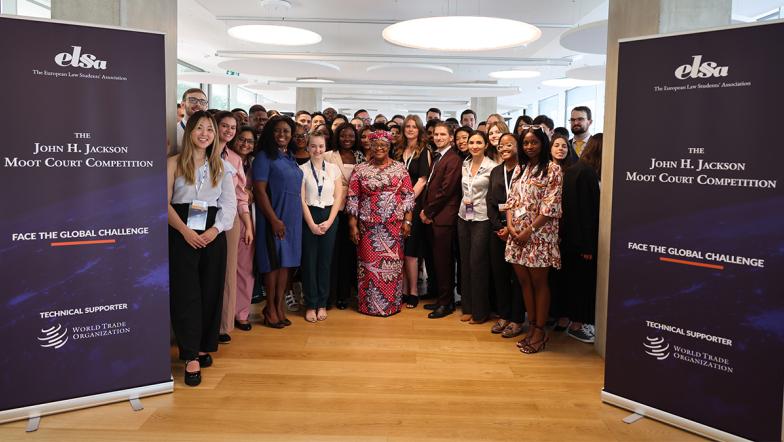Moot Court competition opens with webinar support on offer for participants

The 23rd Edition of the John H. Jackson Moot Court Competition on WTO Law was launched on 16 September 2024, with potential participants invited to follow a series of webinars on how to take part effectively in the competition.
The competition is a simulated hearing under the rules of the WTO dispute settlement mechanism involving exchanges of written submissions and oral pleadings before panelists on international trade law issues. The competition is organized by the European Law Students' Association (ELSA) with the technical support of the WTO.
The WTO and the Advisory Centre on WTO Law (ACWL) are partnering to support participants interested in this competition by providing a series of webinars titled “Legal Mooting Masterclass”. These webinars will equip teams and their coaches with the information required to navigate the competition successfully.
The webinars will provide an overview of the competition, useful tools for research on WTO law, and tips on best practices for participating in the competition from experts from the WTO and ACWL.
The sessions will be held the first week of October and require prior registration.
For the complete schedule and to register click here.
Every year, the John H. Jackson Moot Court Competition provides hundreds of students across the globe an opportunity to address interesting and novel questions of WTO law, and to engage with WTO experts who serve as panelists and sponsors of the competition. Students who participate in the Moot Court Competition often go on to internships, graduate programmes, and careers in international trade law.
This year's case, “Alabasta – Certain measures affecting electronic goods and digital services” — is a dispute between the fictitious WTO members Alabasta and Wano involving trade in tablet computers and services via video streaming platforms. It navigates the complex intersection of the domestic regulation of video streaming platforms and anti-competitive practices in the digital economy on the one hand and international trade obligations on the other. By debating whether Alabasta's actions constitute legitimate state regulation or contravene WTO law, students will gain insight into the evolving landscape of digital trade regulations.




